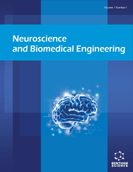Abstract
Memantine selectively antagonizes N-methyl-D-aspartate (NMDA) receptors and prevents neurodegeneration caused by excessive glutamic acid. Memantine inhibits the progress of moderate-to-severe Alzheimer’s disease (AD); however, the precise mechanism by which memantine improves cognitive function in AD is unknown. In the present study, we measured auditory event-related potentials (ERPs) to evaluate the effects of memantine on cognitive function in 21 patients with AD who were being treated with donepezil hydrochloride. Of these 21 patients, 11 (average age, 64.9 ± 11.1 years) showed improvement or no change in the Mini-Mental State Examination (MMSE) after memantine administration (MMSE-improved group), and 10 (average age, 65.8 ± 6.7 years) showed worse MMSE scores after memantine administration (MMSE-worsened group). Results from ERPs measurements showed that after memantine administration, the N1 amplitude at Pz increased significantly in the MMSE-improved group, whereas it decreased in the MMSEworsened group. The N1 component of ERPs is an exogenous evoked potential that appears negative in the parietal region predominantly at a latency of approximately 100 ms after an auditory stimulation and is considered to be related to attention processes. Therefore, our findings suggest that memantine may stimulate the parietal lobe, resulting in increased attentiveness and consequently, improved MMSE scores for those with AD.
Keywords: Alzheimer’s disease, donepezil, event-related potentials, memantine, N1.
 20
20

